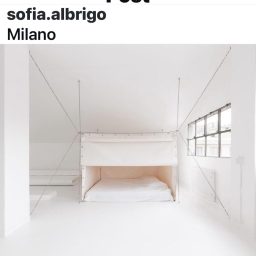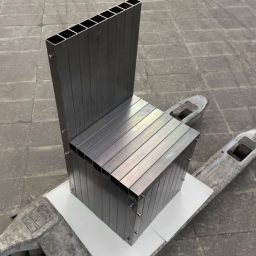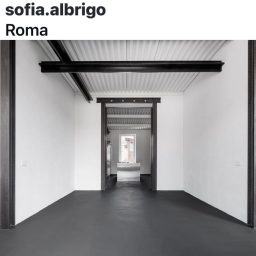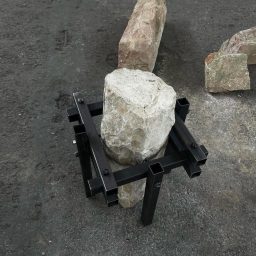DUN ASSOCIATION
DUN is an Armenian word of Indo-European origin, which means house, dwelling, hearth. A symbolic name chosen to represent the right to exist for people who have been subjected to genocide and discrimination of all kinds. The DUN Association offers a place for listening, recognition, and care to those who belong to different ethnic groups and forced migrants, with the intention to rebuild their inner home through personal encounters, psychological reflection, and creativity.
The DUN Association is an ETS, engaged in constant planning inspired by the values of ethics, equality and hospitality, in order to restore dignity and recognition of the rights of our beneficiaries. Each intervention takes into account the centrality of the person: TAKE CARE, CREATIVITY AND ARTISTIC EXPRESSION
The DUN Association operates in compliance with the fundamental rights of migrants. The services offered are based on the principles of: equality, impartiality, continuity, regularity, free of charge, effectiveness, efficiency, accessibility, transparency, participation, information and confidentiality.
EQUALITY AND IMPARTIALITY. The work aimed at all beneficiaries is based on criteria of objectivity, justice, impartiality without any discrimination on grounds of ethnicity, religion, political opinions, psycho-physical conditions, socio-economic conditions and/or sexual orientations
CONTINUITY AND REGULARITY IN THE PROVISION OF THE SERVICE. The activities offered to the beneficiaries are carried out with continuity and regularity. The constancy is important for establishing a relationship of trust, preparatory to the elaboration and treatment processes
FREE. All the services offered are completely free
EFFECTIVENESS AND EFFICIENCY. The Association carries out effectively and efficiently the interventions by paying attention to expressed and unexpressed needs. Each professional works with the aim of guaranteeing support and protection for their beneficiaries by supporting everyone's resilient resources to the maximum. The human and emotional dimension of the relationship between operators and beneficiaries is valued on a reciprocal level. They value economic resources, logistics and this allows for disposition.
The Mission
DUN is an Association founded in 2015 by a group of psychoanalysts, psychotherapists, psychiatrists, anthropologists and artists. Some members of the group were previously engaged in support at a volunteer level psychology department to migrants. DUN chose its team based on a strong humanitarian motivation to be active in our society. DUN offers European and non-European migrants free therapeutic interventions aimed at treating discomfort psychological and psychiatric connected to the traumas suffered in the homeland, in the migratory path and in the country host, with the consequent difficulties of integration in the new social realities. DUN takes care specifically of the psychological health and social inclusion of the person.
The DUN Association takes psychological care of individuals from other cultures, for this reason he has created a model of therapeutic intervention that is based on a plot between the methods of analytical psychology and psychoanalysis, on anthropological analysis culture and on the enhancement of creative expression, particularly in the field of storytelling, audio-visual and cinematographic art.
The psychotherapy courses are personalized for each migrant who has the opportunity to follow in parallel individual and/or group therapy and takes advantage of creative workshops (cinema and storytelling, craft and expressive activities). Collaborate with DUN: artists, directors, architects, anthropologists, sociologists, philosophers, photographers.
1) Psychotherapy
• Individual therapies with adults and children: Weekly meetings conducted by one
psychotherapist and, if necessary, also in the presence of a cultural mediator.
• Group therapy with adults: Weekly meetings conducted by two or more co-therapists, mediators, anthropologists. The group is monosexual or mixed with patients of multicultural origin.
• Group therapy with children: Weekly meetings conducted by two co-therapists in one play space.
• Family therapies: Weekly meetings with the family nucleus conducted by two co-therapists.
2) Creative Workshops
• Creative Tailoring Workshop: it is conducted by DUN psychotherapists, experts in fashion theory, tailors and fashion designers from different cultures, and has the aim of making different fabrics and fashions from known cultures through sartorial and artistic creations. Furthermore, the purpose is also to create manuals facts that can be sold so as to create professionalism for job placement.
• Culinary Art Workshop: it is conducted by DUN psychotherapists and chefs from different cultures.The goal is to get to know the flavors and culinary traditions of different countries and also to create one training for future professionalism in the restaurant and catering sector.
• Singing Workshop: it is conducted by DUN psychotherapists, singing teachers, composers and musicians. The experience of the choir is an important tool for understanding and includes the different cultural realities with which we come into contact every day. The topics covered during the course will provide participants with a complete training and a new communication tool. In addition to group work, we also focus on the individual participant so that each voice can give its personal contribution to the Choir.
• Storytelling and Cinema Workshop: the initiative was created to create a meeting group made up of migrants interested in the iconic/symbolic language of cinema and psychoanalysis ed film experts. The vision of the works proposed in the Cineforum activate memories and reflections about one's own life story that is shared with others. The common thread that emerges from common narrative will later be elaborated by the group so that it becomes one film script.
3) Movies Festival – Films – Installation
DUN has conceived a specific device that is connected to art, specifically cinematographic art. This allows filmic languages to be integrated into psychoanalytic reflections. DUN also organizes annual cultural meetings, events, and film festivals on the theme of interculture and migration. These are called S-Cambiamo il Mondo.
In particular, six editions were held:
• Rome 10-11-12 June 2016, S-Cambiamo il Mondo I Edition, at the Sala Trevi;
• Rome 15-16-17-18 June 2017, S-Cambiamo il Mondo II Edition, at the Sala Trevi;
• Rome 7-8-9-10 June 2018, S-Cambiamo il Mondo III Edition, at the Sala Trevi;
• Rome 8-9 June 2019, S-Cambiamo il Mondo IV Edition, at the Maxxi Auditorium;
• Rome 4-5 June 2022, S-Cambiamo il Mondo V Edition, at La Casa del Cinema;
• Rome 10-11 June 2023, S-Cambiamo il Mondo VI Edition, at La Casa del Cinema.
The seventh edition was for 1 and 2 June 2024, at La Casa del Cinema. As part of the 2024 review, there we did a conference inspired by the book Human Nature, published by the Journal of Analytical Psychology (edited by M.B.Massimilla and C.Pavoni). Experts in the field spoke about the issue of sustainability, respect for Human Nature, and inclusion from several summits. The creation of a contemporary work of art is also planned created by an artist architect Sofia Albrigo, in a space outside the conference venue. It is a totem architecture, metaphorically dedicated to solidarity between peoples and the painful loss of thousands of human beings due to wars, massacres at sea and along migration routes. The title is AXIS MUNDI, the installation wants to indicate the importance of finding an orientation in the world, a new route that leads to the recognition of all peoples, against all discrimination.
The DUN Association has also conceived and produced the following short films:
• "Hamida's Secret" (2018), directed by Cristina Mantis and screenplay inspired by the childhood memories of a Bangladeshi patient. He received the patronage of Amnesty International with this motivation: "For his ability to express the discomfort of those who, in a new country, strongly feel the need not to cut with their past and with their customs and traditions, but also understand the importance of entering a different world in which to be accepted".
• "Gift" (2019), directed by Cristina Mantis and screenplay inspired by some moments of the meetings of the Tailoring Workshop, intertwined with the story of a Nigerian girl, a victim of trafficking while pregnant, who participated in the workshop itself.
• "Intrecci" (2022), directed by Maria Barbara Massimilla. The short film, shot in the splendid setting of Palazzo Altemps in Rome, has so far won about fifteen awards and recognitions at Festival in International Film Festivals. "Intrecci" was also presented at Palazzo Altems on 28/01/23 and at the Campidoglio on 13/05/23.
• "Welcome to the river" (2024), directed by Maria Barbara Massimilla. The short film, of denunciation and testimony, aims to address the wound of human trafficking that occurs during the migration phenomenon. The aim is to translate into a poetic language the story of the suffering linked to the condition of subjugation of the young woman, freely inspired by the story of a clinical case followed by DUN. The intention is thus to promote reflection and analysis of the phenomenon by describing some aspects of Nigerian migration today, in the light of the experiences of uprooting and disorientation that the exodus causes in the generations, which are affected by the traumatic aggravating factor of the human trade practiced in Nigeria. He received the patronage of Amnesty International with this motivation: "The story of the girl's journey is very intense and it is beautiful that she has not been portrayed as a passive subject ‘to be helped’ but as a person who becomes aware of herself, finds her roots and frees herself, with deep and difficult work".
4) Training
The association along with its operators offer continuous training. This is completed by organizing monthly research and study seminars, higher education courses, making use of AIPA and SABOF teachers who are DUN members, and various experts in ethnopsychology, ethnopsychiatry, and other fields of knowledge. The other fields of knowledge include anthropologists, philosophers, and artists.
5) Orientation and Accompaniment to Autonomy
The DUN Association, through emotional and caring relationships, enhances the personal and relational resources of the beneficiaries so that they become available for the development of good planning towards autonomy. There is also accompaniment of the beneficiaries to the training and territorial services of the city and professional training offered in the previously mentioned creative and artistic laboratories.
Sofia Albrigo - AXIS MUNDI FOR DUN ASSOCIATION
Architect MSc USI/AAM info@sofia-albrigo.com -
Kupfergasse 4, Chur 7000 CH
Sofia Albrigo is an Italian Architect and Lecturer.
She has recently founded her office and works between Italy and Switzerland.
The studio has a small number of collaborators and projects, believing that quantity is no longer an attribute of our future.
Sofia conceives architecture as a rigorous act that questions conventions and aims to subvert the way we live space today, in contrast with the standard living models given by the market.
The studio operates through the construction of architectural spaces, installations and objects, guided by a spectrum of analyses questioning what it means to build today and the way we use resources in today’s architectural field.
Albrigo is currently a Lecturer of design in the Bachelor 1 course at the Accademia di Architettura di Mendrisio in Switzerland.
Before opening her own office, she worked in the office of Valerio Olgiati in Flims, Switzerland, from 2016 to 2021 where she was mainly responsible for international projects.
As a project manager, she has led the completion of two buildings, the Pearling Site UNESCO Site and Museum in Bahrain, a UNESCO archeological site, where she also supervised the con- struction site and the refurbishment of an apartment in the center of Paris for Nicolas Ghesquiére. She has also worked on several competitions, commissioned projects, and curated the exhibition design at the Bahrain pavilion at the Venice Biennale in 2021.




